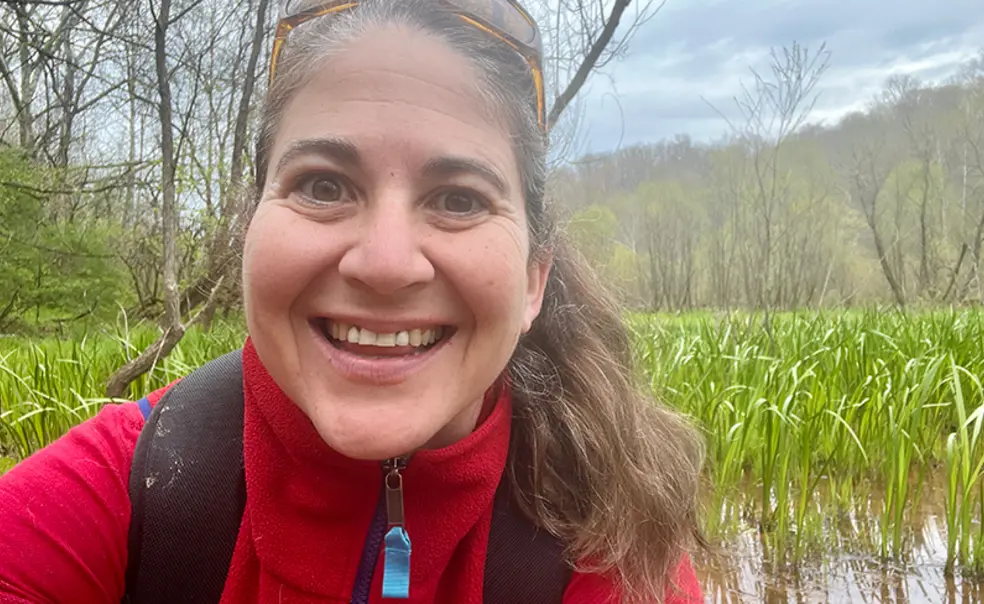Karen Showalter *05 Weaves Together Sustainable Agriculture and Social Justice
Showalter is transitioning her family farm’s corn and hay fields to native grasses and perennials, working to restore soil health
The 190-year-old family farm in Athens Country, Ohio, tells its own story through the land — fields where cattle once grazed, native pawpaw and ginseng patches that sustained generations, and the spring where Karen Showalter *05’s ancestors drew water. Now, she’s writing a new chapter that intertwines sustainable agriculture, social justice, and global youth leadership.
After earning her master’s in public affairs at Princeton, Showalter began her path to this convergence in Niger as a Peace Corps volunteer, living among subsistence farmers who navigate depleted soils and erratic weather. “I often credit the people I worked with [for] teaching me almost everything I know about community organizing,” she says. “Meeting people where they’re at. Taking their lead on priorities. The fact that all work has to be based on relationships and connection.”
These lessons now inform her efforts across multiple spheres: transforming her family’s hayfields into native meadows, leading advocacy campaigns for MomsRising, and directing AMP Global Youth’s Global Scholar Program, where her husband currently works. Showalter sees clear connections.
“I live a very rich life, with many overlapping interests that aren’t just jobs — they’re passions,” she says. “I hope my kids see that and know they can have many things they love. One job does not define them. Nor does their salary.”
At the farm, which she travels to from her home just over the border in Pennsylvania, Showalter is transitioning former corn and hay fields to native grasses and perennials, working to restore soil health — a focus she traces to her Niger experience. She’s replanted an orchard that had been gone for 70 years and is exploring revenue streams from native plants such as elderberry and pawpaw. She is working on building an agroforestry business, where she can sell non-timber, or edible, forest products. The property sits within the footprint of industrial contamination from the Ohio River, adding environmental justice to her agricultural mission as she works on water and soil conservation.
With MomsRising, she seeks to amplify parent voices to influence family-supporting policies like family and medical leave legislation in Pennsylvania. And as director of Global Scholar, Showalter channels her Peace Corps experience into developing young leaders equipped to tackle global challenges. The program is student-led, connecting youth across continents. She recalls a recent Syrian student at Princeton who joined and is now writing about youth experiences amid political instability for the program’s network of young leaders and educators.
Showalter’s vision for the future weaves these threads even tighter — she dreams of bringing Global Scholar to her farm, integrating sustainable agriculture and social justice work in Appalachia. “I see all of these experiences as so integrally — but currently loosely — woven together,” she says. “But that story is becoming stronger and clearer for me, and it’s all coming together.”
The metaphor of weaving is particularly apt, as fiber arts form yet another connection across her work. Just as her ancestors brought a loom to the farm in 1833, Showalter spins wool and weaves today, drawing parallels to the textile traditions she encountered in Niger. She recently planted flax, echoing a family tablecloth supposedly woven from farm-grown flax in the late 1800s.
“The land itself tells this tremendous story I’m always discovering,” Showalter says.










No responses yet